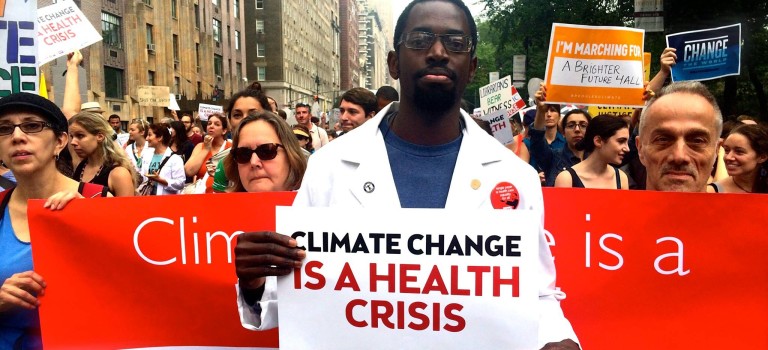Climate Note · Sep 26, 2014
Uncovering the Truth about Global Warming’s Health Impacts at the People’s Climate March
Filed under: Climate Impacts

Participants in the People’s Climate March in New York City on September 21st each came with a message. Looking across the endless river of people and signs flowing through Manhattan it was hard to absorb the vast variety of communication on display.
Noticeable though was one young man in a lab coat clutching a placard, “Climate Change is a Health Crisis.”
The sign conveys a serious consequence of global warming that few Americans currently understand.
In June, we reported that Americans have not yet connected the dots between global warming and impacts on health. When we asked Americans in our national survey for their best estimate of the impact on human health worldwide—now and 50 years into the future—the majority of respondents said, “I don’t know.” Only 18% to 32% of Americans said correctly that each year worldwide, thousands will die or millions will become ill, or be injured by global warming.
This understanding does not match up with scientific consensus about the severe impacts of global warming on public health.
The World Health Organization estimates that at least 140,000 people are currently dying each year as a result of climate change, while millions more become ill (from asthma, heatstroke, and infectious disease, for example). When a similar number of people die of a disease, we call it a crisis.
Our research finds that while few Americans understand the health consequences, they are most likely to engage emotionally with the issue of global warming when it’s talked about in terms of the effects on public health. The same sort of feelings are also associated with support for climate change adaptation and mitigation measures.
Now the march is over, and the challenge remains for those seeking to inspire action on climate change to engage people who are currently skeptical or dismissive of the issue. Perhaps they can take a lesson from this man and his sign.
Photo by Rebeka Ryvola, 2014.